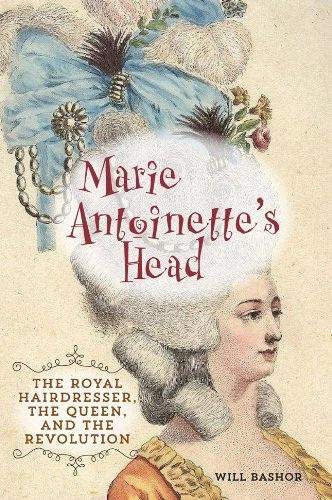
Marie Antoinette's Head: The Royal Hairdresser, the Queen, and the Revolution
Published: 10/16/2013Marie Antoinette has remained atop the popular cultural landscape for centuries for the daring in style and fashion that she brought to 18th century France. For the better part of the queen’s reign, one man was entrusted with the sole responsibility of ensuring that her coiffure was at its most ostentatious best. Who was this minister of fashion who wielded such tremendous influence over the queen’s affairs?
Winner of the Adele Mellen Prize for Distinguished Scholarship, Marie Antoinette’s Head: The Royal Hairdresser, The Queen, and the Revolution charts the rise of Leonard Autie from humble origins as a country barber in the south of France to the inventor of the Pouf and premier hairdresser to Queen Marie-Antoinette. By unearthing a variety of sources from the 18th and 19th centuries, including memoirs (including Léonard’s own), court documents, and archived periodicals the author, French History professor and expert Will Bashor, tells Autie’s mostly unknown story. Bashor chronicles Leonard’s story, the role he played in the life of his most famous client, and the chaotic and history-making world in which he rose to prominence. Besides his proximity to the queen, Leonard also had a most fascinating life filled with sex (he was the only man in a female dominated court), seduction, intrigue, espionage, theft, exile, treason, and possibly, execution.
[Starred Review] An informative examination of a little-known player on a great stage...An entertaining, well-researched work that will particularly interest students of cultural history and the French Revolution.
— Kirkus
Entertaining . . . captures details of an extraordinary time and place. An engaging...narrative of a celebrity hairstylist, circa 1789. Biography buffs and lovers of historical fiction will enjoy this work.
— Library Journal
A 'Must-Read' Book
— New York Post
A delicious and meticulously researched perspective on the man and a society tipped irrevocably on the brink of ruin. A heady read, indeed.
— LAVENDER
[G]ives you plenty of bang for your buck...: thirty-pound wigs, mouse-infested coiffures, and the occasional miniature naval battle all make appearances. But it is also a scholarly history not merely of the vagaries and politics of Versailles court fashion, but the rise and fall of Léonard Autié, a man of modest background who rose to become hairdresser to the queen, and whose fortunes were inextricably tied to that of the doomed monarchy.
— Paris Review